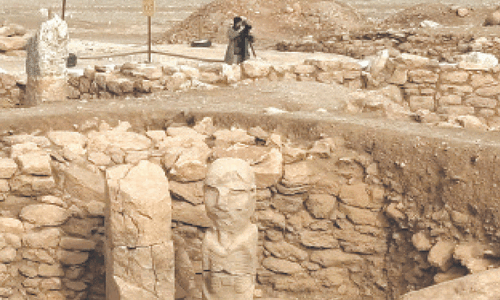WASHINGTON, Aug 13: Peter Goss, the man picked by President Bush to head the CIA, was having breakfast with former ISI chief Gen Mahmud Ahmad as the Sept 11 attacks unfolded, says information released by US intelligence officials.
Mr Goss, when asked to comment on the meeting, said he was not discussing Osama bin Laden or terrorism with Gen Mahmud Ahmed, but India-Pakistan relations. Mr Goss, a Republican congressman and former CIA case officer, has headed the House Intelligence Committee for the last seven years. President Bush announced his nomination on Tuesday.
Although the Senate must confirm his nomination before he takes charge of the world's largest spy agency, leaders of the Democratic Party have indicated they may not dispute his appointment.
Reports appearing in the US media say that it was no coincidence that Mr Goss did not discuss terrorism or Al Qaeda when he met Gen Ahmad on the day American was attacked.
The US administration was not focused on combating terrorism before 9/11, was the media consensus. Under Mr Goss's leadership the House Intelligence Committee held only two hearings on terrorism before Sept 11, far fewer than any other congressional panel with jurisdiction over intelligence.
Information released by the CIA show that he was one of those officers recruited in the early 1960s from upper-class circles, particularly in New England. Mr Goss himself was born to a prominent Connecticut family and was educated at Yale, like President Bush and the Democratic presidential nominee, John Kerry. He joined the CIA in 1962.
Mr Goss spent eights years as an officer in the CIA clandestine service during a period when the agency openly backed military regimes across the world. He was fluent in French and Spanish, and was initially assigned to Miami, then to postings in the Caribbean.
He served in Haiti and the Dominican Republic - the first ruled by the US-backed regime of Francois (Papa Doc) Duvalier, the second by the military strongman Rafael Trujillo, whose assassination led ultimately to a US invasion in 1965.
Later in his CIA career, Goss moved to London and carried out undisclosed assignments in Europe. Reports in the US media suggest that he was looking after CIA interests in Greece when Greek colonels staged a coup in 1967 and established a brutal regime. Mr. Goss, who studied Greek at Yale, was fluent in this language as well.
Goss left the CIA in 1971 after suffering a debilitating infection that left him unable to continue clandestine overseas work. He settled in southwest Florida, opened a local newspaper with several former CIA colleagues, and quickly became a multi-millionaire in real estate.
He launched a political career in the Republican Party, winning a mayoral position. He was appointed to a vacant county office in 1982 by then-governor Bob Graham, a Democrat.
In 1988, he was elected to US Congress on a safe Republican seat. In 1997 he was selected to head the House Intelligence Committee, set up in the mid-1970s, after the revelation that CIA was spying on US citizens as well, to strengthen congressional oversight.
As chairman of the committee, Mr. Goss won the respect and admiration of America's intelligence community for his efforts to protect them from too much congressional interference.
He also co-chaired the joint congressional investigation into the 9/11 attacks. In the course of this probe, Mr. Goss sought a Justice Department investigation of his own joint committee, after a leak to the media of some information supplied to the committee by the Bush administration.
The report issued by the congressional joint committee was rejected by the families of victims of the 9/11 attacks who successfully lobbied for the appointment of an independent panel in 2002.
Mr. Goss opposed the new panel, until the Bush administration agreed to accept it. This led to the formation of the 9/11 Commission, which has recommended sweeping reforms in the American intelligence community.
































